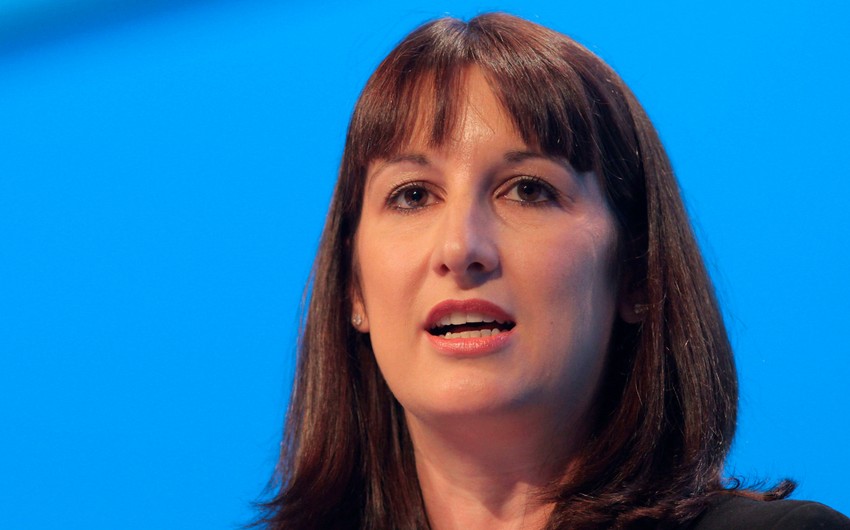British Treasury chief Rachel Reeves told lawmakers on October 30 that taxes will rise by 40 billion pounds ($52 billion) in order to plug a hole in the public finances and provide new funding for the UK's cash-starved public services, in a wide-ranging budget statement that could set the tone for years to come, Report informs via ABC News.
In the Labour Party's first budget since returning to power earlier this year after 14 years in opposition, Reeves also changed the U.K.'s debt rules — a move that will allow the government to borrow more or as she explained “invest, invest, invest.”
Her biggest cash commitment was an additional 25 billion pounds for the cherished National Health Service, which has seen waiting lists rise to record levels in the wake of the coronavirus pandemic.
“The choices that I have made today are the right choices for our country,” she said at the end of her statement, which lasted the best part of 80 minutes. “To restore stability to our public finances. To protect working people. To fix our NHS. And to rebuild Britain.”
The overall increase in taxes, which is the biggest for over three decades, comes in large part from an increase in the tax businesses pay for employing people. Reeves said it was needed because of the economic “black hole” left by the previous Conservative government.
The overall tax burden in the UK is forecast to rise from 36.4% of the U.K's annual GDP in 2024/25, to a “historic high” of 38.3% in 2027/28, according to the independent Office for Budget Responsibility.
The biggest single tax increase — worth 25 billion pounds — is a rise of 1.2 percentage points in national insurance contributions paid by employers.
The levy, which pays for benefits and helps fund the NHS, will remain unchanged for employees. Reeves insisted that many smaller businesses will not be affected as she doubled the salary threshold at which they start paying it.
Billions more will also come from increases in capital gains tax and closing loopholes in the way inherited money is taxed, while other revenues will come from potentially politically attractive sources such as those who use private jets or send their children to fee-paying schools.
One tax that was surprisingly left unchanged was the levy that drivers pay at the pump, while taxes on most alcoholic drinks were increased — a pint of draught beer or cider was cut by a penny, though.
As well as increasing taxes, Reeves also raised spending for a number of departments, aside from health. Schools will get more, for example, this year, which will be used to create breakfast clubs for young students and upgrade facilities.
She also set aside 11.8 billion pounds to compensate those affected in an infected blood scandal that saw tens of thousands of people contracted HIV or hepatitis from transfusions of tainted blood and blood products in the 1970s and 1980s.
She also set aside 1.8 billion pounds to compensate victims of the Post Office Horizon scandal, which saw hundreds of branch managers wrongly convicted of theft and fraud as a result of a faulty computer system.
The center-left Labour party was elected July 4 after promising to end years of turmoil and scandal under Conservative governments, get Britain’s economy growing and restore frayed public services.
But the scale of the measures announced on Wednesday by Reeves was not hinted at during Labour's cautious general election campaign nor in its manifesto for government.
Rishi Sunak, the former prime minister who leads the Conservative Party until the weekend when his successor is announced, said the budget was “broken promise after broken promise” and that "working people will pay the price.”
During the election, Labour said taxes on so-called “working people” — a term whose definition has been hotly debated in the media for weeks — will not be raised.
Though Reeves did not increase taxes on income or on sales, the increase on employers' national insurance contributions will likely reverberate for a while as Sunak said it was a clear breach of Labour's manifesto commitment and would lead to lower wages.


 https://static.report.az/photo/b64b3ab5-8018-3a07-856e-06e2c4518b6c.jpg
https://static.report.az/photo/b64b3ab5-8018-3a07-856e-06e2c4518b6c.jpg

